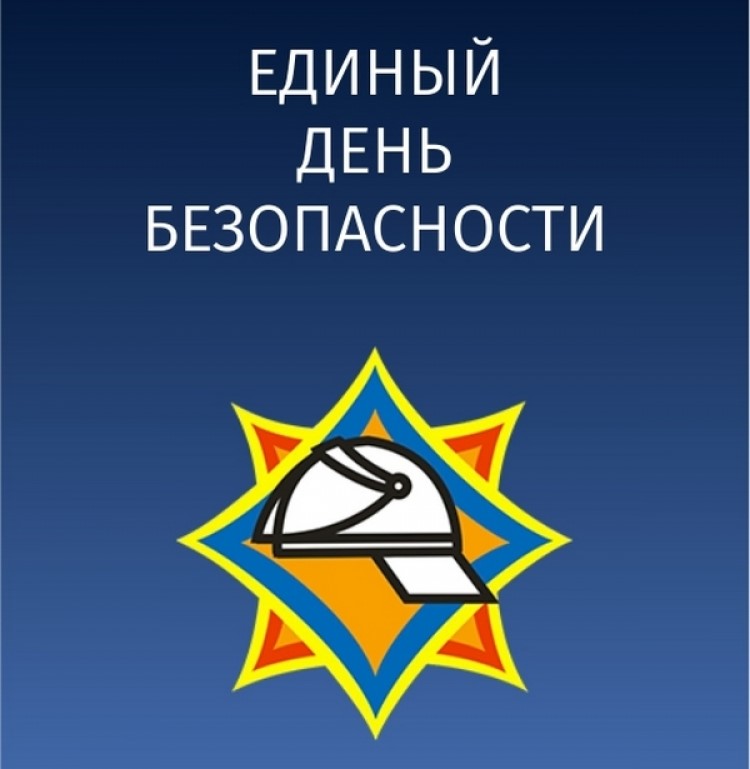Listening-comprehension test
- 1. Make the right choice.
1) The bullies met Michael: a) near his home b) at the bus stop c) at the school grounds.
2) The boy told about the bullying to : a) his English teacher b) his elder sister c) the head
- 2. Who these words belong to?
a) the English teacher b) the bullies c) the head d) Michael e) Ben
- Hey, what happened to you?
- And I haven’t got any money-only my bus pass.
- This won’t happen again, I promise you.
- Well, now, what’ve you got for us today?
- 3. Are these statements true or false?
- Michael never gave his money without a fight.
- Michael went home on foot.
- Ben was about 11, but looked younger.
- There were three bullies.
- Ben asked Michael to protect him from the bullies.
- 4. 1. Explain why:
- Michael wasn’t able to tell his relatives about the bullying.
- Michael couldn’t concentrate in class.
- Michael decided to go & find his teacher.
- 4. 2. Complete the sentences.
- The boy was in the lowest class, so he was probably …
- The teacher wanted to know if the bullies who had hurt the younger boy were …
- The teacher was going to see … the next morning.
- 5. 1. Do you think Michael did well when he complained about the bullying? Explain your point of view.
- 5. 2. What do you think happened the next day?
Keys Listening-comprehension 8th form
1.
1) c 2) a
2.
1) d 2) e 3) a 4) b
3.
1) false 2) false 3) true 4) true 5) false
4.1.
- because his mother would worry, his sister had her own interest.
- because he thought about what might happen after school and his mind went blank.
- because the bullies had frightened the boy from the lowest class and had taken his bus pass.
4.2.
- 11 years old
- the same boys
- the head first thing
Listening – Comprehension Test. 5-th Form
The Olympic Games.
Robert Dover – Роберт Дувр
Athens – Афины
Greece – Греция
Athletes – атлеты
Two thousand five hundred years ago the first Olympic Games took place in Olympia, in Greece. Only athletes were allowed to compete in the Games.
Women were not allowed to take part in them. They were not to watch the games either. The Olympic Games took place every four years, and the time between each two years was called an Olympiad.
The Olympic Games in England first took place in the 17-th century. They were organized by Captain Robert Dover. The first modern Olympic Games were organized in Athens, Greece, in April 1896. Two hundred and eighty-five sportsmen from 13 countries took part in them. The games were very popular and thousands of Greeks came to watch them. The competitions lasted five days.
During these games there are competitions in many kinds of sport. Sportsmen from all over the world play tennis and golf, football and hockey, they run and jump, ski and skate.
Nowadays the Games are held in the capitals of different countries. The Olympic Games are always a great festival of sport, youth and beauty.
Listening – Comprehension Test. 5-th Form
The Olympic Games.
1. Choose the words which you have heard in the text:
Compete, Paris, England, Great Britain, 285 sportsmen, women, between, Olympiad.
2. Choose the right variant:
1. Two thousand five hundred years ago the first Olympic Games took place in …
a) England b) America c)Greece.
2. The games took place every …a) 4 years b) 5 years c)10 years.
3. The first Olympic Games in England took place in the …a)16th century b) 17th century c) 18th century.
4. At the Olympic Games there are competitions in …a) athletics only b) many kinds of sport c) in football only.
5. The first Olympic Games in England were organized by …a) George Bush b) Robert Dover c) Margaret Thatcher.
3. Write “true” or “false”:
1. 3500 years ago the first Olympic Games took place.
2. The Olympic Games took place every 5 years.
3. During the games there are competitions in many kinds of sport.
4. Women are allowed to take part in the competitions nowadays.
5. Sportsmen all over the world take part in the competitions.
4. Answer the questions:
1. When did the first Olympic Games take place?
2. Who was allowed to compete in the Games at first?
3. Who organized the Olympic Games in England?
4. Where were the first modern Olympic Games organized?
5. What do the sportsmen do at the Olympic Games?
5. Have you ever seen the Olympic Games? What kinds of competitions do you like to watch?
Listening-comprehension test 6th form
- I. Ответьте на вопросы, выбрав правильный ответ в соответствии с текстом:
- Why did Dan and Daisy put the hands of the clock on fifteen minutes?
- they were hungry
- it was a joke
- they always did it
- What did the mother do when she looked at the clock?
- she was angry
- she was surprised
- she understood the joke
- When did the mother send the children to bed?
- at seven o’clock
- at a quarter to seven
- at a quarter past seven
- What didn’t the children like?
- that the mother understood their trick
- that the mother played the same trick on them
- that they had to say they were sorry
- II. Закончите следующие предложения в соответствии с текстом:
- The children put the clock on
- an hour
- half an hour
- a quarter of an hour
- The children put the clock on
- Lunch was on the table in
- half an hour
- ten minutes
- five minutes
- The children did not come home till
- half past six
- half past five
- half past seven
- Their bedtime was
- a quarter to seven
- a quarter to eight
- seven o’clock
- The next day they will get up
- an hour earlier
- half an hour earlier
- a quarter of an hour earlier
- III. True or False:
- The children wanted to have lunch early.
- They put the hands of the clock on twenty minutes.
- The mother was not surprised.
- After lunch they played in the garden.
- The mother said the clock was always right.
- It was a good idea to change the time.
- Why did Dan and Daisy put the hands of the clock on fifteen minutes?
HOW DAN AND DAISY PLAYED A TRICK
Dan looked at the clock. It said twenty to one.
“Oh, dear, lunch-time won’t be soon,” said Dan to his sister Daisy. “And I am so hungry, Daisy, let’s put the clock on a quarter of an hour. Then when Mother sees the time, she will think it is late and will hurry to get lunch ready. We shall have it early!”
So he and Daisy moved the hands of the clock on fifteen minutes. When Mother came to see the time, she was surprised!
“Oh, I shall be late with lunch if I don’t hurry up,” she cried.
In five minutes time the lunch was on the table.
After the lunch the brother and sister went out to play in the garden. They did not come home till half past six, so they did not have time to put back the sitting-room clock.
Bedtime was at seven o’clock. They were together with Mother, talked with her. Then Mother looked at the clock. It said one minute to seven!
“Bedtime!” said Mother.
The children looked at one another.
“But Mother, it is only a quarter to seven,” said Dan. “It’s not our bedtime yet.” “Look at the clock,” said Mother.
“Yes, but it’s a quarter of an hour fast,” said Daisy.
“That clock is always right,” said Mother. “Of course, it shows the wrong time if someone is naughty and moves the hands on. It says seven o’clock, so off you go!”
And off the children went! They were very angry.
“Do you think Mother knew?” asked Daisy.
“Yes, said Dan. “Let’s say we are sorry – or we shall get up a quarter of an hour early tomorrow and go to bed early again! I don’t think it was such a good idea after all, Daisy!”
It wasn’t, was it? They played a trick on Mother – but they did not like it at all when she played the same trick on them!
Listening Test 7 th form
TV Interview
Reporter: « Hello everybody. It’s one o’clock and we begin our afternoon programme ‘Meeting with Famous People’. Here is Mr. Frank Davis, a famous children’s writer. He will tell you some interesting facts about his hobbies. Welcome to the programme, Mr. Davis.
Mr. Davis. Now, I would like to begin by remembering those times when I was a little boy. I had so many hobbies then. First, I think, I was a great collector of different things. I collected stamps, coins, badges, pocket books, pictures, pencils and what not. Whatever I collected I always tried to get as many things as I could. I did try to have thematic collections. I had large collections and was always proud of them.
When I was older, at the age of twelve, I think, I became fond of sports. I spent a lot of time outdoors. I was playing different sport games in the yard. In summer I swam a lot and became a school champion. In the 5th form I became a theatre-goer and spent all my free time in the theatre and sometimes I also went to the cinema.
When I finished school my parents bought me a computer. So I forgot about going to the theatre, to the cinema or visiting museums. Working on computers became my hobby. However soon I became tired of this hobby too, and decided to change it. I tried to paint pictures in my free time but I wasn’t very good. I tried dancing and acting but soon I realized I could never be a success on the stage.
Then one day I had an idea to write a story about my dog. The story was rather short. It was not very clever or interesting but it was my story and I liked it very much. This is how I began to write stories about birds and animals. My little daughter liked to listen to them before she went to bed. She said that she was fond my new hobby.
Now it’s difficult to say if it is my hobby or not as it my work now. I like this and I have already written five books for children.
Listening Test
TV Interview
- Write down the words that you have heard in the text:
a reader, a writer , books, pictures, pens, to be proud, of, to be full of, indoors, outdoors, a yard, a park, cinema, museum, galleries, to dance, to sing, a son, a daughter.
- Answer the questions:
What is Mr. Davis?
What hobbies did he have?
Was he a great performer?
At what age did he become fond of sports?
- Mark the sentences as True or False:
At the age of twelve, he became fond of sports.
He was playing different games at school.
When he was finishing school his parents bought him a computer.
He wrote a story about his trip to London.
4. Complete the sentences:
1. He collected ….., ……, ……, ……, …… .
He had …… collections.
He had large collections and was always …….. of them.
In the 5th form he spent all his free time in ….
5. What were his hobbies? Describe them all.
Listening Comprehension. 10th Form
The Story of Fiction
Literature plays a key role in global culture. It educates and entertains us, brings past centuries to life. and helps us to understand our, deepest dreams and fears. How did the art of fiction-writing develop, though? Well, it's a very,
very long story...
Nobody knows when fiction began. Maybe the first story-teller was a prehistoric mother trying to explain the world to her children. Or perhaps it was a hunter making up adventures around the camp fire. Who can tell?
What we do know, though, is that story-telling was a purely oral (spoken) activity until around 800 BC. Myths and tales were passed down by word of mouth and had to be memorized by each new generation of story-tellers.
That only changed When the Ancient Greeks started to keep written records of certain stories. The earliest surviving examples of this are the epic poems of Homer (a blind professional storyteller who lived in the eighth century BC). Why were his tales
written down? Again, we can't be certain, but obviously they were considered important enough to be formally preserved.
So, the idea of written stories began in Greece. Gradually, though, it spread across Europe. The result of this was a steady flow of poems, plays, romances and legends over the next 2,300 years, many of which can still be read today. Yet although this rich literary tradition existed, very few people could enjoy it at the time. Why? Because... only the educated upper classes were able to read and books had to be written by hand, so very few copies existed.
What changed all that and brought written fiction to ordinary men and women was a machine. It was developed during the mid-fifteenth century and its inventor was a German called Johannes Gutenberg.
Gutenberg's revolution took place in the city of Mainz. That's where he built and operated the first ever printing press with movable metal letters. Simple printing methods (like Chinese woodblocks pieces of wood with letters or pictures carved into them) had existed for centuries, of course, but they had to be done by hand. What made Gutenberg's press so different was that the individual letters themselves—the 'type'—could quickly and easily be moved to create different pages. Suddenly, this made it possible to print entire books cheaper and more quickly than ever before.
Thanks to Gutenberg's discovery, written fiction was able to reach a massive new audience—but not straight away. It was a gradual process which slowly took place over several generations as more and more printing presses began to operate across Europe and thanks to the Renaissance and the gradual spread of education, more and more people learned to read.
Listening Comprehension. 10th Form
The Story of Fiction
- Choose the words you’ve heard in the text.
Oral, sure, written, deaf, blind, Africa, China, Europe, personal, individual, BC, AD, print, publish, whole, entire
II. Choose the best variant to complete the sentence:
1. Story-telling was a purely …
a) oral activity until around 800 BC.
b) written activity until around 800 BC,
2. The Ancient Greeks were the first whose tales and myths were ...
a) passed down by the word of mouth
b) started to keep in written form.
3. The idea of written stories was spread across Europe and the result of this was ...
a) a steady flow of poems, romances and legends over the next 2,300 years.
b)that many people could read all those poems, legends and romances.
4. Only few people could enjoy poems, legends, romances at that time because ...
a) only the educated upper classes were able to read, and books were written by hand, so very few copies existed.
b) that literature tradition didn't exist.
5, Gutenberg invented the first printing press with ...
a) pieces of wood with letters and pictures carved into them.
b) movable metal letters.
6. Gutenberg's method...
a) had to be done by hand.
b) made it possible to print entire books cheaper and more quickly than ever before.
III. Write if the sentences are true or false:
- Nobody knows when the fiction began.
- Homer was a deaf professional storyteller.
- It was a machine that brought written fiction to ordinary men and women.
IV. Complete the sentences with the words from the text:
- Perhaps it was …making up adventures around the camp fire.
- Myths and tales were … … by word of mouth and had to be memorized.
- The idea of written stories began in …
- Thanks to the Renaissance and the … spread of education, more and more people learned to read.
- Thanks to Gutenberg’s discovery, written fiction was able to reach a massive new …
V. Write some (3-5) sentences about the role of literature in global culture.
Keys:
- oral, written, blind, individual, BC, print, entire.(0,25 балла)
- 1a , 2b, 3a, 4a, 5b, 6b.(0,33 балла)
- 1true, 2false, 3true (0,66 балла)
- 1 a hunter
2 passed down,
3 Greece
4 gradual
5 audience (0,4 балла)
V. 2 балла
Всего 21 заданий
Form 11
Text for Listening Comprehension
Mr. Jones’ Visit
Mr. Jones wrote to his brother Robert: “Would you like to come to the country with us on Sunday? We have a good cook and I think you’ll have a good time and good food. I’ll meet you at the bus”.
Robert was a shy man. He did not like to cause trouble to others, but he came. The bus arrived late in the evening on Saturday evening. Mr. and Mrs. Jones had already had supper but Robert had not even had time for lunch, but he was too shy to say so. He said he had eaten a good supper before he took the bus and was not hungry. He was so tired after the bus ride that he slept late on Saturday morning.
“Don’t forget to give Robert a good breakfast”, Mrs. Jones said to the cook. But the cook forgot, and Robert was too shy to ask her. They spent half of the day in the open air and arrived back at 2 o’clock. “We aren’t going to eat until 4 o’clock because we had such a large breakfast,” Mrs. Jones said to Robert. “Would you like to go swimming?” “No, I don’t think so,” Robert said. “In fact, I don’t feel very well. I haven’t felt good for several hours.” Mr. Jones got worried and insisted that Robert should see a doctor. Robert didn’t want to cause any trouble, but they went.
The doctor could not discover the trouble. The doctor said the symptoms Robert had were sometimes the result of the wrong food. “You’d better not eat much supper”, he said to Robert. Robert was too weak to protest. The cook gave him some thin soup for supper.
He said good-bye to his brother at 8 o’clock, and immediately ate two meals, one after the other, in a restaurant. While he ate, he wrote a note to thank his brother for a good time. “I had fun,” he wrote while he ate a second dessert. “You’re lucky to have such a good cook. I shall never forget her meals”.
Form 11
Test on Listening Comprehension
I. Give English equivalents from the text.
доставлять другим неприятности
слишком скромный, чтобы сказать об этом
несколько часов
результат неправильного питания
попрощался с братом
II. Choose the right continuation of the sentences.
- Robert arrived at his brother’s place
- early in the morning;
- late in the evening;
- in the afternoon after lunch.
- Mr. and Mrs. Jones
- didn’t generally have any supper;
- had had supper by the time Robert came;
- were having supper when Robert came.
- Robert didn’t have any breakfast on Sunday
- because his brother had forgotten to warn the cook;
- because the cook had forgotten about Robert;
- because Robert hadn’t had time for breakfast.
- Robert did nor go swimming because
- he did not feel well;
- he was hungry;
- he could not swim.
- The doctor examined Robert and advised him
- not to eat anything for supper;
- to have some thin soup for supper;
- not to eat much supper.
III. Fill in the missing part of the sentence.
1. Robert told his brother he had had a good supper before he … .
2. Mr. Jones got worried and insisted that Robert … .
3. The doctor said the symptoms Robert had were sometimes the result of … .
4. He said good-bye to his brother and immediately … .
5. Robert wrote in the note to his brother: “You’re lucky to have …”.
IV. Explained how it happened that Robert was hungry while being at his brother’s place.
Listening Test 9th Form
A Shop Incident
I. Choose the right word.
- Jennifer got off the bus from … and began walking.
- school
- university
- college
- The shop was run by an … family.
- Australian
- American
- Asian
- Except for her and Mr. Patel, there were only … other people there.
- two
- three
- five
II. Mark the correct ending of the sentence.
- Jennifer preferred to buy food in Mr. Patel’s shop because
- the prices there were a little lower.
- they had things she couldn’t get anywhere else.
- the supermarket was too far from her flat.
- Mr. Patel, the owner of the shop,
- smiled at Jennifer when he saw her come in.
- didn’t notice her come in because he was checking through a list.
- told her the vegetables were very fresh that day.
- The boys looked ridiculous in their overcoats because
- they were too old
- they were too long
- they were too heavy for that time of the year.
III. Mark the following statements as True or False.
- When Jennifer got off the bus she met two friends of hers.
- On her way she had to buy some food.
- It sounded like a tin dropping on the floor.
- When she got to the cash-desk there was nobody there.
IV. Answer the following questions.
- Why did Jennifer go to the back of the shop?
- What did Jennifer notice one of the boys do when she looked through a gap in the shelf?
- What did the boys pay for at the cash-desk?
- What did Jennifer decide to do in the end?
V. Do you approve of Jennifer’s decision? (write not less than 7 sentences)
Listening Text 9th Form
Jennifer got off the bus from university and began walking towards the flat she shared with two other students. On her way she had to buy some food and she stopped in one of the shops in the street. It was run by an Asian family, and although the prices there were a little higher than in the big supermarket further down the street, she did a lot of shopping there. The vegetables were fresher and they had various things she couldn’t get elsewhere. Mr. Patel, the owner of the shop, was checking through a list, but smiled, as he always did, when he saw her come in.
Jennifer picked up a basket and walked towards the back of the shop, where the rice was kept. Except for her and Mr. Patel, there were only two other people there. They were two teenage boys and they were standing at the end of one of the shelves. She glanced at them as she passed. They were wearing long, old-fashioned overcoats and they looked rather ridiculous in them because the coats were too long. But such things were popular with some teenagers at the time. She walked on to the next shelf and found the rice she was looking for. Then she heard something. It sounded like a tin dropping on the floor. She looked through a gap in the shelf and noticed one of the boys bending down. She saw him pick up a tin of food. But instead of putting it in the shopping basket, he dropped it into the inside pocket of his long overcoat. Jennifer glanced back. She could see Mr. Patel at the cash-desk still checking through his list. Then she looked through the gap in the shelf again. The boys still had their backs to her. ‘Come on, let’s get out of here.’ she hard one of them say. At the same time, she saw one of them put another tin in his overcoat pocket. They moved away from her. She could no longer see what they were doing or hear what they were saying.
When she got to the cash-desk, the two boys were in front of her. She watched them pay for the few things they had in the basket. They had both buttoned their coats and fastened them with their belts. Mr. Patel did not seem suspicious at all. He even smiled at them as they were about to leave. Jennifer hesitated for a moment but she made up her mind. She ought to tell the shopkeeper about what she had just seen.
3th Form
LISTENING-COMPREHENSION TEST
Better Late Than Never
One Wednesday morning Finy Fox and Shiny Fox, the two little brothers, were walking to school. They walked slowly for 10 minutes, then Shiny said, “Be quick or we shall be late for school! It is half past eight!” But Finy said, “I don’t want to go to school today. We are already late. We can have so much fun in the forest. Our mother thinks we are at school, so we can play in the forest. We can go home when we hear the boys coming home from school”. Shiny said this was a good idea.
So the foxes ran to the river. What a good time they had! They laughed a lot, they swam in the river, they danced with little bears and sang with the birds. They go on well with all the different animals who lived in the forest. The foxes didn’t think at all about their classroom, their desk, pens, pencils, their books and their lessons. Wednesday was their longest school day – they had Maths, English, Handicraft, Art and Nature Study on their timetable. All the subjects were important. But the foxes didn’t want to write on the blackboard or in their exercise-books. They didn’t want to study, to learn to count and to read. They didn’t want to work. They wanted to play outdoors.
LISTENING-COMPREHENSION TEST
Better Late Than Never
- I. Choose the main characters of the story:
- Little Fox and Big Fox.
- Finy Hare and Shiny Hare.
- Finy Fox and Shiny Fox.
- Thin Fox and Fat Fox.
- II. Choose the right ending of the sentence:
a) in the city
- Two little foxed lived b) in the forest
c) in the country
d) at school
- near the sea
2. The foxes played b) near the lake
c) near the school
d) near the river
- Wednesday
3. The longest school day was b) Tuesday
c) Friday
d) Monday
- famous
4. All the subjects were very b) important
c) nice
d) funny
- III. True of false.
- The foxes were late for school.
- They danced with the little bears and sang songs with the birds.
- All the subjects were not very important.
- The foxes wanted to write on the blackboards and in their exercise books.
- IV. Correct the untrue sentences:
- On Wednesday morning Finy and Shiny walked to the museum.
- The foxes laughed a lot and played football near the river.
- On Wednesday they had French, Music, Geography and Algebra on their timetable.
- The little brothers wanted to study, to learn to count and to read very much.
- Shiny and Finy got on well with their school teachers.
- V. Answer the question:
Why didn’t the foxes go to school?
Listening Text
A House-Warming Party 4th Form
My aunt has a new flat in Lenin Street. It’s a two-room flat in a new big house. The flat is on the second floor. The house faces a beautiful park.
The aunt bought new furniture: a large wardrobe, a sofa, two armchairs, six chairs, a bookcase, and some other things.
The furniture in the living-room and in the bedroom is dark. The furniture in the kitchen is light. A new big snow-white refrigerator stands in the kitchen. That and the yellow curtains over the window make the kitchen gay and cosy.
Mother says that my aunt is lucky because there is a telephone in her new flat.
Last Sunday my aunt had a house-warming. She got lots of presents: cups and saucers, spoons, forks and knives and many others. Her friends made her two wonderful presents: a big mirror and a vacuum-cleaner. My grandmother and grandfather gave her a washing-machine as a present.
My aunt cooked a lot of tasty things for that day.
I did whatever I could to help her: to lay and to clear the table and to wash up.
We had a gay house-warming party.
We all had a lot of fun that day.
Listening Test
- I. Find the equivalents:
1. a two-room flat a) на кухне
2. wonderful presents b) двухкомнатная квартира
3. on the second floor c) замечательные подарки
4. in the kitchen d) на третьем этаже
- II. Choose the right variant:
- The flat is in _______.
- an old small house
- a new big house
- a new small house
- The furniture in the living-room is _____.
- white
- light
- dark
- The _____ curtains over the window make the kitchen cosy.
- blue
- yellow
- brown
- The house faces _____.
- a beautiful park
- a beautiful garden
- a beautiful river
- III. Mark the sentences as True or False:
- The aunt bough new furniture.
- The furniture in the kitchen is light.
- There is no telephone in the flat.
- Her friends gave her a TV set as a present.
- IV. Answer the following questions:
- What furniture did the aunt buy?
- Why is the aunt lucky?
- What presents did the aunt get?
- Who cooked a lot of tasty things for that day?
- V. Translate into English.
- У моей тети новая квартира.
- Мебель в спальне темная.
- В прошлое воскресенье у тети было новоселье.
- Я помогал ей мыть посуду.
- The flat is in _______.



















